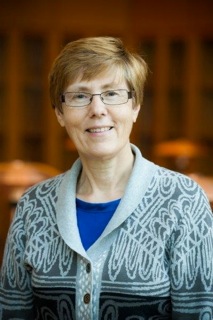Public Lecture: Working with the Crowd

Working with the Crowd: Engaging Participation in Online Crowds and Communities
A Public Lecture by Professor Caroline Haythornthwaite
Venue: The Ferguson Room, National Library of Australia
Date: Tuesday 26th August 2014
Time: 5:30pm –
7pm Speaker: Professor Caroline Haythornthwaite
Speaker: Professor Caroline Haythornthwaite
Registration: Please rsvp to Megan.Deas@canberra.edu.au
About the Speaker
Professor Caroline Haythornthwaite is Director of the School of Library, Archival and Information Studies, The iSchool at The University of British Columbia, Canada. She has an international reputation for her research on the way interaction, via computer media, supports and affects work, learning, and social interaction, addressed primarily from a social network perspective. She has written many journal articles and has co-authored and co-edited five books to date. Further information can be found on her website http://haythorn.wordpress.com/.
Lecture Abstract
The organization of work is changing. The change began with the first move to online communication and has accelerated with each new innovation in social media and social networking. The latest challenge entails harnessing the contributory power of the crowd to address work needs. The crowd focus promises
the contributory power of many without the obligation to plan for long-term maintenance of the workforce – the willing and able will stop by, contribute if sufficiently interested, motivated or paid, take their (intangible or tangible) reward and leave. The turn to the crowd – crowdsourcing,
crowdfunding, crowd creativity, and more – represents a marked change from earlier attention to communities – virtual communities, communities of interest, and communities of practice. Communities promised mutual awareness of members, an expectation of ongoing relationships, commitment to
a task pursued with others, and shared interest in reaching goals. What have we gained and lost in focusing on the crowd over the community? What do we know about each form of organizing that can help match tasks and goals to crowd and community options? How can we harness the power of crowds as well
as the commitment of communities?
This presentation builds on the author's research on online behaviour, participation, and social networks to outline two models for design and analysis of contributory practice: a lightweight model that draws on a crowd perspective to address tasks and rewards from discrete contributors,
and a heavyweight model that draws on a community perspective to address contributions from connected contributors. The presentation will also address how crowdsourcing is more than just asking workers or volunteers to contribute labour and ideas that become the property of others. The future of crowdsourcing
entails multiple models of contributory practice, some of which entail full commitment to the goals of the work, trust in the use of contributions, and payoffs – however near or far – for society, the environment, and the next generation.

